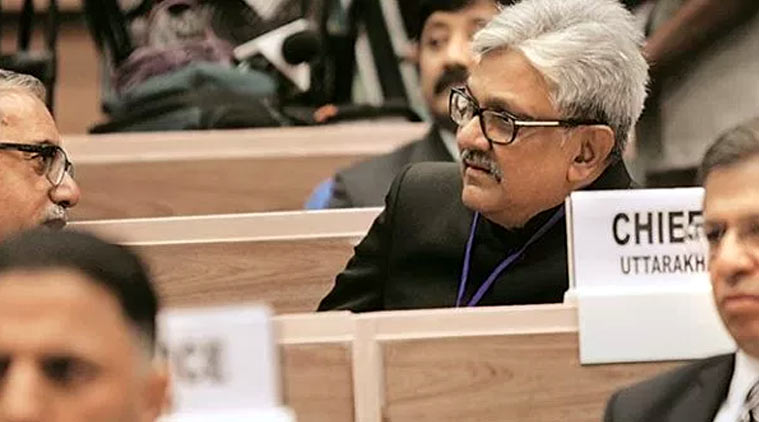The supposed sanctity of Indian judiciary has taken a major hit over the issue of appointment of Justice KM Joseph as a Supreme Court judge. With the Supreme Court collegium and the Union Government taking conflicting stands on the elevation of Joseph from being the chief justice of a high court, drama unfolded at regular intervals.
This culminates in the scheduled swearing-in of the judge, braving odds, along with two others Tuesday.
Sadly, the Centre finally clearing the appointment of Joseph this past week has itself turned into a fresh controversy. Some apex court judges met and registered their protest with Chief Justice Dipak Mishra over the Narendra Modi government lining him as the last among a set of three to swear in Tuesday. This central step would effectively make him the junior-most among even the latest inductions.
For, not only the serial number but even a minute counts in order of seniority as per judicial norms in appointments, as had also been in practice in the past. Seniority is reflected also in the way the names are lined up in the government notification. Clearly, the Centre wants Joseph treated as the junior-most among the three; something that the protesting judges see as an ill-intent and a calculated insult to the judge.
It is common knowledge that Justice Joseph had earned the wrath of the Modi government after he revoked a presidential order imposing central rule in Uttarakhand, where he was the high court chief justice in 2016, leading to the restoration of an ousted Congress government in that state. The issue has taken several twists and turns, and Justice Joseph sought to survive the odds with able support from a section of the judicial fraternity. Notable among those who backed Joseph was activist judge Justice Chelameswar, now retired, who was a member of the collegium and who had taken up cudgels against CJI Dipak Mishra on this as also other matters in recent times. Justice Joseph’s loss of seniority, as it stood after the issue of government notification on his appointment, is bound to have adverse consequences all through the five years he will be an SC judge before retirement.
Judge appointments are mired in controversies also as there is a political input involved in the selections. Elevation of high court judges to the Supreme Court is based not only on merit. Political and other influences play their roles. In the process, there are fears that merit is often ignored. This could eventually affect the quality of the justice dispensing system itself.
The practice of collegiums recommending names of judges for the Supreme Court is itself questioned – as to how judges of the apex court should select judges for the same court without a direct governmental role.
Courts in India have acquitted themselves fairly well and avoided getting involved in major controversies. There, though, were cases like the judges in the Hyderabad High Court taking bribes in crores for granting bail to a controversial mining baron, or allegations of corruption against a retired CJI, or sex scandals involving some other judges. In a highly corrupt and wayward society like India’s, these were perhaps aberrations. Judges as a rule are also seen to be keeping a safe distance from politics, avoiding controversies of meddling in non-judicial affairs, unlike in neighbouring Pakistan. Under the circumstances, it is imperative to maintain the just equilibrium between courts’ functioning and interests of the governing establishments. Governments cannot be comfortable if it is seen that judges go out of their way and give little regard to national (read ‘ruling political party’s’) interests. Judges need to strike a fair balance between the need to uphold law and public interest – though this is often and rightfully confused with political interests of the governing side.
By finally accepting the collegium’s recommendation vis-à-vis Joseph, the government has acknowledged the importance of the system. But it has not corrected its mistake with regard to the seniority of the judge and is forcing Joseph to be the junior-most judge in the Supreme Court by making him the last to take oath. What it could do in future, in public interest, is to avoid creating controversies that undermine the nation’s courts and judicial systems.
Judiciary, after all, is among the four important pillars of democracy we as a nation are wedded to.
